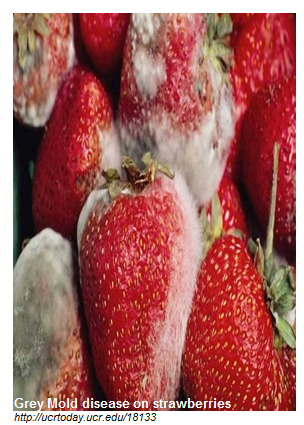Small RNAs From Fungal Pathogens Suppress Plant's Immunity
- Technology Benefits
- Elucidates a natural occurrence of cross-kingdom RNAi in which a fungal pathogen transfers fungal sRNAs into host cells in order to achieve infection rather than “proof of principle.”
- Technology Application
- Grey mold disease General plant pathology
- Detailed Technology Description
- None
- Application No.
- 20150203865
- Others
-
Images

Tech ID/UC Case
24343/2013-816-0
Related Cases
2013-816-0
- *Abstract
-
Background: Botrytis cinerea, the causative agent of grey mold disease, is a fungal pathogen that infects more than 200 plant species. In the inveterate “arms race” between plant and pathogen, pathogens have evolved effector proteins to counteract the immune responses of host plants.
Description: Researchers at UCR have discovered that small RNAs from fungal pathogens act as effector molecules to suppress host immunity. Novel evidence has shown that certain small RNAs produced by B. cinerea, silence host genes and facilitate infection by sabotaging the host plant’s immune system.
- *Applications
-
- Grey mold disease
- General plant pathology
- *IP Issue Date
- Jul 23, 2015
- *Principal Investigator
-
Name: Hailing Jin
Department:
- Country/Region
- USA

For more information, please click Here





